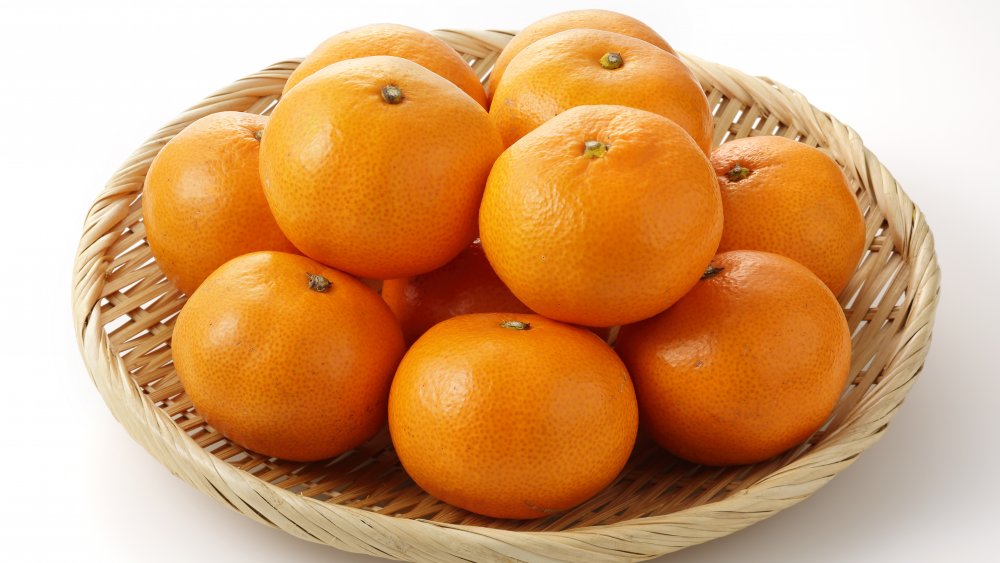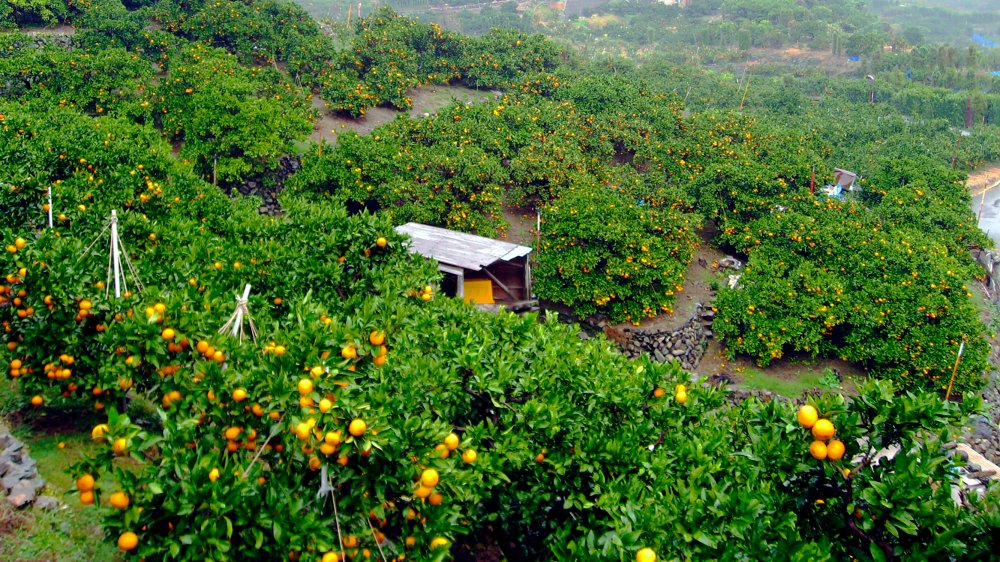Here's Why A Crate Of Oranges Just Sold For $9,600 In Japan
If you're used to picking up a pound of mandarin oranges for less than $3, this headline might have left your head spinning. However, fruit has a very different cultural and economic value in Japan, especially when compared to Western countries. According to Soyeon Shim, dean of the School of Human Ecology at the University of Wisconsin-Madison, fruit plays a very different role in Asian culture and Japanese culture specifically. "Fruit purchase and consumption are tied to social and cultural practices. It is not only an important part of their diet, but, perhaps more importantly, fruit is considered a luxury item and plays an important and elaborate ritual part in Japan's extensive gift-giving practices," Shim told CNN.
Hopefully, this gives you some sense of how a single crate of 100 mandarin oranges managed to sell for one million yen, or about $9,600 this week. First of all, these oranges, also known as mikan, are the first of the season to be sold from the famous Ehime prefecture on the island of Shikoku in southern Japan. The fruit from this region is renowned for its sweet, rich flavors, easy-to-peel skin, and melt-in-the-mouth texture; think of them as the Tesla of oranges. Their secret? The leading brand, Hinomaru, uses plants that receive extra light because the sun is not only shining from above but also being reflected by the sea and nearby stone walls. But this isn't the first time they've sold for such a high price.
The history of Hinomaru mikan
While the typical price for Hinomaru's mikan is about $75 for 10 kilograms (roughly 22 pounds), they're far from the most expensive citrus in Japan. In fact, the current record price for mandarin oranges in Japan is almost $1,000 apiece, according to Nippon. Part of what makes these fruits so expensive is basic economics: limited supply and high demand. Only about 100 farmers work in the Nishiuwa area of Japan, producing this type of mandarin orange, which should give you a sense of how small the farms are. It was expected that the COVID-19 pandemic would have a greater impact on this year's first auction of the season, according to Shin Asai, from JA Nishiuwa's sales department, however, this did not turn out to be the case (via CNN).
Instead, the orange auction seems to have gone off without a hitch, more than serving its purposes of creating media buzz for the start of the fruit season and affirming the quality of this year's mandarin orange harvest. The identity of the winning bidder hasn't been made public, but likely will be within a few days.

